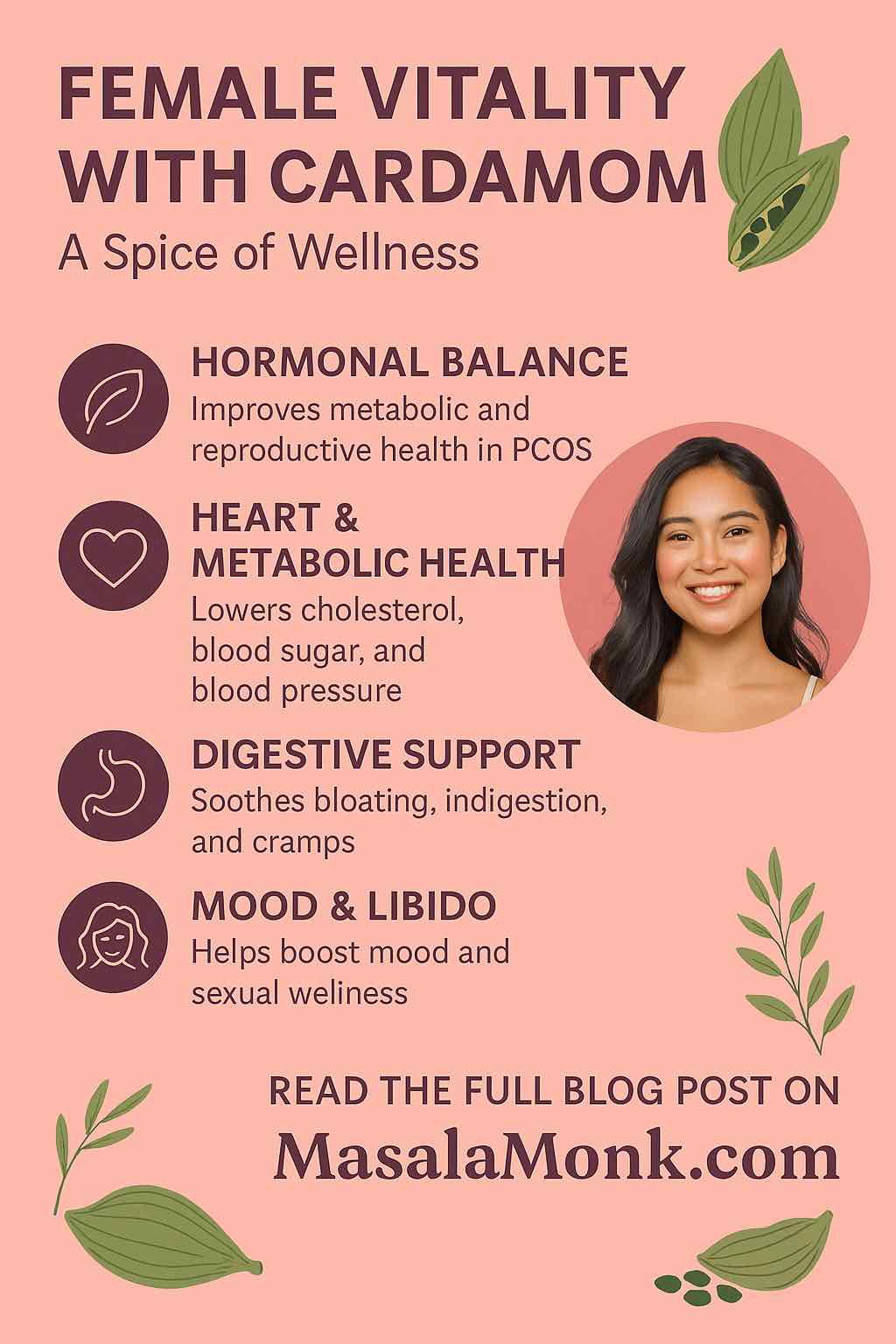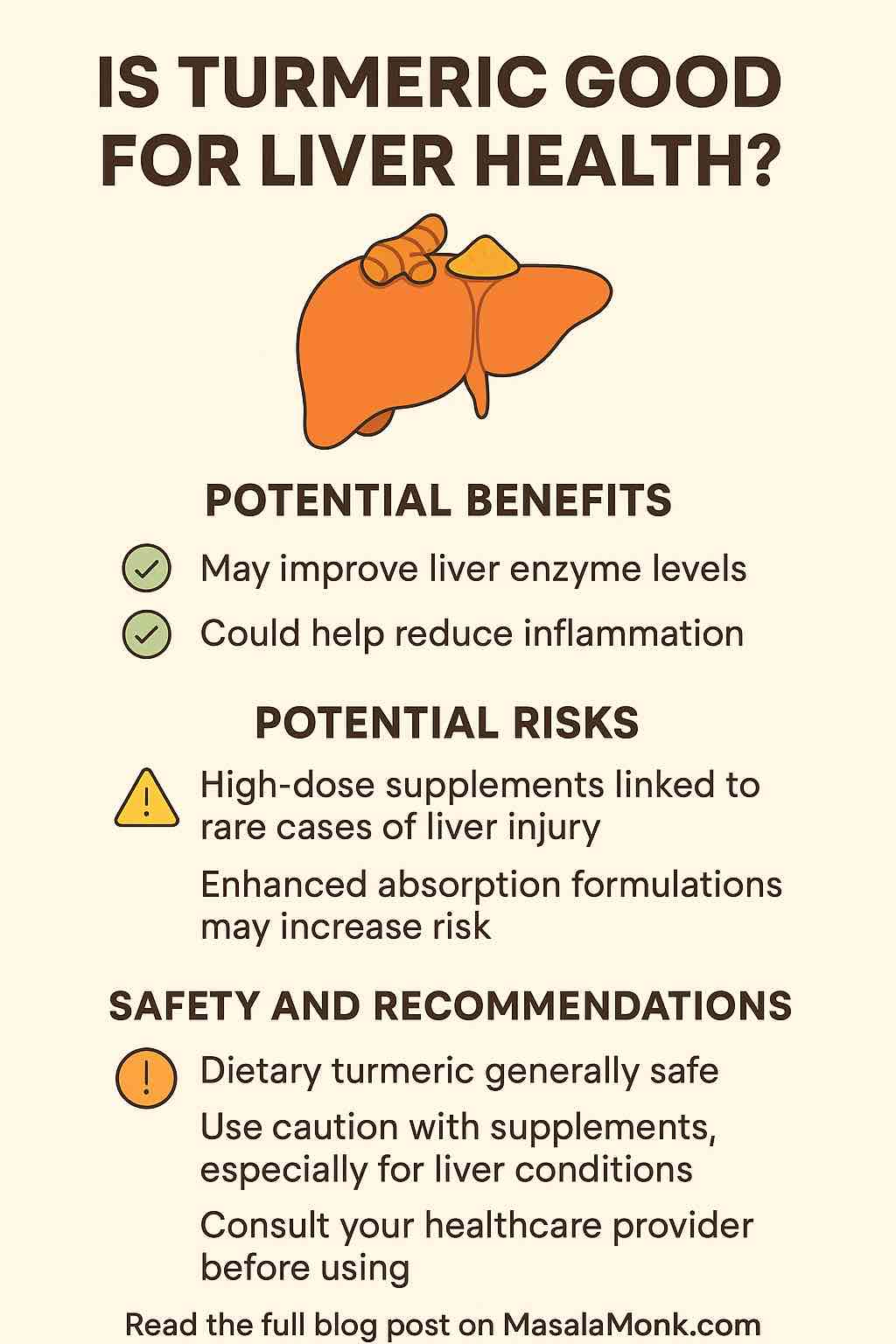
Unlocking Hormonal Balance, Metabolic Strength, and Inner Radiance with Nature’s Aromatic Powerhouse
From the fragrant masala chai brewing in Indian kitchens to luxurious Middle Eastern desserts, cardamom has long been cherished for its exotic aroma and unique flavor. But beyond its culinary charm, cardamom holds powerful medicinal secrets—especially for women’s health and vitality.
Modern research now confirms what Ayurveda and ancient herbal traditions have known for centuries: cardamom is a spice of wellness, offering benefits that span from hormonal balance to digestive ease, and even emotional harmony.
Let’s dive into how cardamom can support female vitality—backed by science and steeped in tradition.
🌿 1. Hormonal Harmony & PCOS Relief
Hormonal imbalances plague many women, especially in the form of PCOS (Polycystic Ovary Syndrome). This condition affects metabolism, weight, fertility, and mood.
💡 What Science Says:
A 16-week clinical trial on women with PCOS revealed that 3g/day of green cardamom:
- Lowered luteinizing hormone (LH), testosterone, and DHEA
- Boosted follicle-stimulating hormone (FSH)
- Reduced inflammation markers like TNF‑α and CRP
- Helped trim waist circumference and improve insulin sensitivity
Cardamom even regulated genes linked to fat metabolism and hormonal resistance.
💖 What It Means for You:
If you’re struggling with irregular periods, stubborn belly fat, or fertility challenges, cardamom might offer natural support to get your body back in sync.
❤️ 2. Metabolic Strength & Cardiovascular Support
Cardamom shines when it comes to heart and metabolic health—critical concerns as women approach midlife.
🧪 Research Highlights:
- Lowers LDL cholesterol, triglycerides, and total cholesterol
- Reduces blood pressure through mild diuretic and vasodilatory action
- Improves insulin function and stabilizes blood sugar levels
- Decreases inflammation markers like hs-CRP and IL-6
In women with pre-diabetes, just 8 weeks of cardamom use significantly improved their lipid profile and oxidative stress.
💖 What It Means for You:
Whether you’re managing blood sugar, preventing heart disease, or navigating menopause weight shifts, cardamom acts as a natural ally in keeping your metabolism humming and your heart healthy.
🩺 3. Digestive Comfort & Menstrual Ease
Cardamom isn’t just about what happens in your bloodstream—it also works wonders in your gut and uterus.
🌿 Traditional & Clinical Uses:
- Relieves bloating, constipation, and indigestion
- Calms the stomach lining and supports gastric enzyme secretion
- Reduces nausea during pregnancy (inhaling cardamom essential oil post-cesarean reduced vomiting)
- Eases menstrual cramps with its anti-spasmodic, analgesic, and anti-inflammatory properties
💖 What It Means for You:
Whether it’s your monthly cycle, pregnancy nausea, or gut sensitivity, cardamom can bring soothing relief from the inside out.
🛡️ 4. Antioxidant Powerhouse & Immune Booster
Female vitality isn’t just about hormones—it’s also about how your body handles stress, toxins, and pathogens.
🌟 Bioactive Magic:
Cardamom is packed with:
- 1,8-cineole – an immune-enhancing compound
- Flavonoids and polyphenols – protect against oxidative stress
- Natural antimicrobial oils – fight bacteria and inflammation
In preclinical studies, cardamom’s active compound cardamonin showed anti-cancer activity, especially in breast and colon cancers.
💖 What It Means for You:
You’re not just getting a spice—you’re getting cellular protection, a stronger immune response, and possible long-term disease prevention.
💃 5. Mood, Libido & Sensual Energy
Feeling “off” emotionally or sensually? Cardamom has long been revered as an aphrodisiac and mood-lifter.
🌸 How It Works:
- Promotes blood circulation to the reproductive organs
- Offers a warming aroma that stimulates the senses
- May help regulate mood through antioxidant support in the brain
While modern clinical data on libido is limited, the traditional use is strong—cardamom is still used in many cultures as a female tonic for emotional and sensual rejuvenation.
💖 What It Means for You:
A pinch of cardamom in your tea or dessert might just awaken more than your taste buds—supporting confidence, connection, and emotional balance.

🧴 How to Use Cardamom for Vitality
☕ Daily Rituals:
- Add crushed cardamom to chai, coffee, or golden milk
- Sprinkle into smoothies, oatmeal, or baked goods
- Simmer pods in herbal teas for digestive and menstrual support
💊 Supplement Form:
- Capsules: 500mg–1000mg per dose
- Recommended: 1.5g–3g/day of green cardamom seed powder
- Always consult a healthcare provider, especially if pregnant or on medications
⚠️ Precautions
- May lower blood pressure—caution if on antihypertensive meds
- Mild side effects: digestive upset or tongue irritation
- Avoid excess use during pregnancy without medical supervision
✨ Final Thoughts: Spice Up Your Wellness
Cardamom is more than just a flavorful ingredient—it’s a natural wellness elixir for women. From PCOS to mood swings, heart health to menstrual ease, this ancient spice offers a gentle yet powerful way to reclaim your vitality.
So next time you open your spice cabinet, think of cardamom not just as flavor—but as female fuel.
👉 Curious to Learn More?
Dive deeper into the healing world of spices and herbs at MasalaMonk.com, where ancient wisdom meets modern wellness.
➡️ Read the full guide, recipes, and tips now at MasalaMonk.com
🙋♀️ FAQs: Female Vitality with Cardamom
1. How does cardamom help with female hormonal balance?
Cardamom supports hormonal balance by reducing inflammation and regulating hormones like LH, FSH, and testosterone. Clinical studies show improvements in PCOS symptoms, including reduced androgen levels and better insulin sensitivity.
2. Can cardamom help with PCOS and irregular periods?
Yes. In a clinical study, women with PCOS who consumed 3g of green cardamom daily experienced better hormonal profiles, weight reduction, and improved menstrual regularity when combined with a healthy diet.
3. Is cardamom safe to use during pregnancy?
In moderate amounts used as a spice, cardamom is generally safe. It may even help reduce pregnancy-related nausea. However, pregnant women should avoid supplements or essential oils without medical supervision.
4. What are the cardiovascular benefits of cardamom for women?
Cardamom helps lower LDL cholesterol, improve HDL levels, reduce blood pressure, and support insulin function—making it beneficial for heart health, especially during menopause or in cases of metabolic disorders.
5. Can cardamom improve mood and libido in women?
Traditionally, cardamom has been used as an aphrodisiac and mood enhancer. While more research is needed, its circulation-boosting and stress-reducing properties may positively influence mood and sexual wellness.
6. How does cardamom aid digestion and menstrual comfort?
Cardamom helps soothe the digestive tract, reduce bloating and gas, and acts as an antispasmodic—making it effective for menstrual cramps and digestive discomfort commonly experienced during periods.
7. What is the recommended dosage of cardamom for health benefits?
Most studies use around 1.5–3 grams of cardamom seed powder daily. For general wellness, adding 1–2 crushed pods to food or tea is a safe and effective approach.
8. Are there any side effects of consuming cardamom?
Cardamom is generally safe in culinary amounts. Rare side effects include mild digestive discomfort or tongue irritation. People on blood pressure or anticoagulant medications should consult a doctor before using it medicinally.
9. Can cardamom help with weight loss or belly fat in women?
Yes. In studies on women with PCOS and metabolic syndrome, cardamom supplementation helped reduce waist circumference and improve lipid metabolism, supporting healthy weight loss efforts.
10. How can I incorporate cardamom into my daily routine?
You can add cardamom to:
- Chai or herbal teas
- Smoothies, oatmeal, or yogurt
- Curries, rice, or stews
- Use it in spice blends or try cardamom-infused wellness supplements










